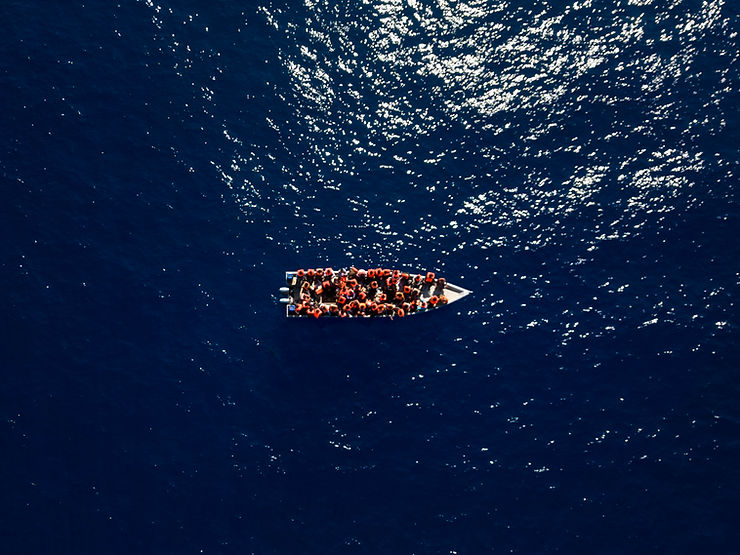By: Sophie Tian
On June 8, a blue smuggler trawler filled with approximately 750 migrants left Tobruk, Libya, and headed toward mainland Greece. However, only 104 survivors reached their destination in Greece. So far, the Coast Guard has recovered 82 bodies, but hundreds more remain missing.
Most of the migrants on the ship were aware of the risks but felt they needed to make the journey as they were escaping war or looking for better wages in Europe. Thaer Khalid al-Rahal wanted to save his son. After escaping from the war in Syria, four-year-old Khalid had been diagnosed with leukemia, and the U.N. refugee agency couldn’t cover the cost of treatment. Rahal had to get to Europe to earn money for Khalid’s bone marrow transplant. “Thaer thought he didn’t have a choice,” said his cousin.
Another passenger, Mohamed Abdelnasser, was looking for more money to support his family. The government rejected Matloob Hussain’s Greek residency renewal, and he didn’t want to go back to the war in Pakistan. “Europe doesn’t understand. We don’t leave because we want to. There is simply nothing for us in Pakistan,” said Adiil Hussain, Matloob’s brother.
Rahal’s family said they didn’t know how he contacted the smugglers but acknowledged he was desperate. Abdelnasser didn’t even tell his family. “We would have stopped him,” said his father.
Delegates later visited migrants’ families to collect money for the smugglers. The fees were around $4,500 per person, impossibly high for many families.
Waiting in Libya was tough. The migrants said they were treated like goods, not people. The house was packed with so many people that many migrants slept in the yard. The doors were guarded by men with guns.
Rahal messaged his wife Nermin every day. It took a month of waiting to finally secure a ship to Greece, and all the while, Rahal worried about Khalid. “I’ll manage to get the money,” he said. He stopped communicating with his family on June 8, when the migrants boarded the blue trawler headed to mainland Greece.
Hussain called his brother just before he left. “He said the boat was very bad. He said they had loaded people on the boat like cattle. He said he was below deck and he preferred it so he didn’t have to see that he was surrounded by water,” said Adiil. Hussain also said the smugglers were armed with guns, so he couldn’t refuse to board.
Then the migrants lost signal and the communication between families stopped. One relative said it felt like a film that had just stopped halfway through.
News of the trawler’s capsize reached families on June 14. Hundreds were found dead or missing.
Families waited outside of migrant reception centers and kept their phones on in hopes of receiving a call. Police arrested a smuggler but had no news about the missing. There was no way of knowing if a loved one was alive or not. Survivors recalled that most passengers were stuck below decks when the ship capsized.
No one wanted to tell Khalid that his father, Rahal, might be dead. His wife Nermin was grieving too, but she had to take care of Khalid and his cancer first.
Adiil went to Libya to look for his brother. The hospital wouldn’t let him in, and no one nearby had seen Hussain since he left on the trawler. He told Hussain’s daughter, Arfa, that her father was safe in the hospital because he didn’t want to admit the truth.
Many families of the ship’s missing passengers are still holding on to hope and waiting for any sign that their loved ones may still be alive.











